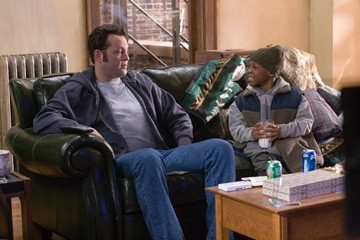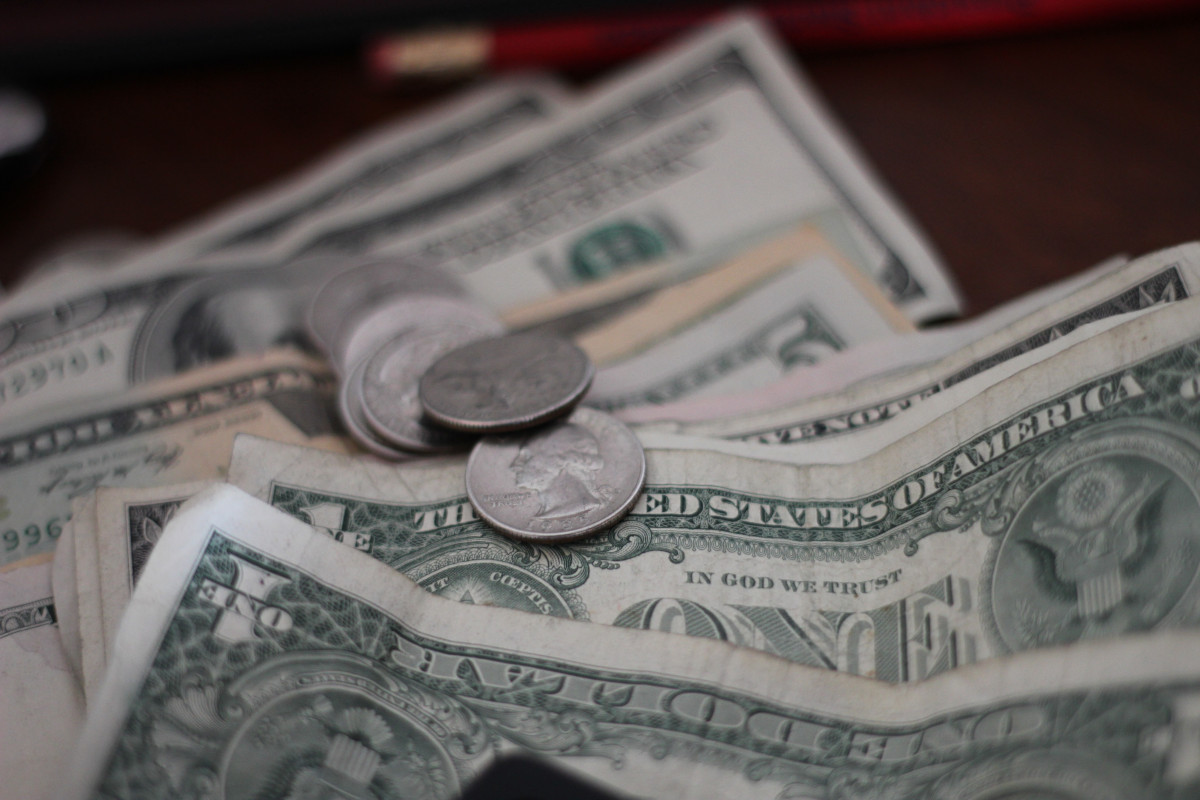Of course you know what money is, doesn’t everyone? But do you know how it works or how to use it well? For a lot of people money is a scary thing. It’s a monster lurking under the bed whispering that they’ll never have enough or that it will all be taken away tomorrow.
It doesn’t have to be that way. You can feel good about money and make it work for you; you just need to understand it.
Money is Just a Tool
One of the most basic things to understand about money is that it’s just a tool. It’s a means to an end. It may sound obvious, but money is for buying things. That’s it.
The reason I’m pointing out the obvious is so that you don’t fall into the trap of thinking that money means anything else. Having money is good, but money doesn’t define you — or anyone else. Someone who has more money than you isn’t a better person, and someone with less money isn’t any worse. It’s just money.
Money is a tool that allows you to buy the things you want or need. I specify “want” or “need” because they are very different from each other. When you make a decision about spending your money, you have to ask yourself if it’s something you need or something you want.
Need
Things that fall into the category of Need are anything that keeps you alive, gives you shelter, or gets you where you need to go. Food, water, electricity, a house or apartment, a car, bike, or public transportation.
Want
The Want category is very broad. It includes anything you want, but isn’t in the Need category. Easy, right?
There’s nothing wrong with buying things you want — as long as you’ve already taken care of the things you need.

Buying groceries to make meals is obviously a need. Buying a bag of chips at 7-11 just because they look tasty is a want. Those are easy examples.
Let’s try a more complicated example. Let’s say you want high-speed internet service in your home. Is that a want or a need? Is it both?
If you have to have an internet connection for work, that would qualify as a need — although if your employer demands it, they should pay for it. But what if you only use it for personal email, web browsing, and social media?
One could argue that those things are necessary. First, in this century we mostly communicate through the internet — not landline phones like in the olden days. Also, many services we use are online. Utilities, banks, etc.. Back in 1995, having an internet connection was mostly a want. These days it’s a need, like electricity or water.
But what about streaming services like Netflix or Hulu? Unless you’re in the entertainment industry, you would probably label those a want.
Want and Need are Not Always Black or White
There’s no perfect answer to the question of need or want. Sometimes the line is even kind of fuzzy. The most important thing is that before you spend your money, you ask yourself which category you’re spending in.
If you live like you’re rich when you’re broke, you will never get rich. If you live like you’re broke when you’re not, you can get rich!”
Gerald Peters
Assets and Liabilities
Another concept that’s important to understand about money is the difference between assets and liabilities. The words might sound fancy, but they’re easy to understand.
An asset is something you own that has value but doesn’t cost any money to maintain. It may even earn you money.

Examples of assets might be:
- Cash you have on hand
- A savings or investment account
- Property that earns more money than it costs to own or maintain
- Gold or silver
- A computer
A liability is something that takes your money away. For example, you may own your car and not make payments on it, but you still have to pay for gas, insurance, maintenance, and yearly registration.
Another example is real estate. Even if you own bare land without anything on it, you still pay property tax every year.
These things can seem like assets because banks consider them as collateral when you want to get a loan. And that’s helpful, but they still cost money to own — which makes them a liability to you.
However, if you have property and you rent it out for more than it costs in property taxes and maintenance, then you have an asset.
Let’s say you own your car and you drive for Uber. If you earn enough to pay for your car’s gas, insurance, maintenance, and yearly registration, then your car is an asset. Hopefully you’re also making more than it costs to maintain your car! If you’re making less than it costs to drive for Uber, then the car is a liability and you should definitely look for other work.
Paying Yourself First
One rule that you can follow that will server you for the rest of your life is to pay yourself first.
That means that any time you get money — whether it’s from a job, or a gift, or you win the lottery — you put some of that money into a savings account or away somewhere so you aren’t using it right away.

Throughout your life, you’ll have to pay other people for things you need. Rent, food, electricity, internet, gas, and any debts you have. You can’t avoid those things, you must pay them. But before you start buying the things you want, you need to pay yourself.
How do you do that? It’s actually very simple. Any time you get money from any source, take care of your necessities first. Then take 10% of what’s left and put it away. Don’t use it. It doesn’t matter if it’s $1.00 or $10,000, take 10% and save it somewhere.
After that, you can use the rest to pay for whatever you want. Of course, you can put aside more than 10%, but the minimum should be 10%. These little bits may not seem like much when you put it away, but they build up over time. And, if you put that money somewhere it generates interest, you’ll have earn even more while it just sits there.
What if you don’t have anything left over, or not even enough to cover your necessities? In that case, you need to start earning more. Ask for a raise, start a side job, maybe even take a second shift somewhere until you get your head above water. It’s not easy, but it won’t be forever.
The only way you can get ahead of your liabilities is to put a portion of your money away before you buy the stuff you want. This is also a very difficult thing to do sometimes.
Most people don’t do this. The majority of people in the U.S. actually spend more money than they make every month. And if their income suddenly disappears, they find that they no longer afford the basic necessities and worse, they have nothing to fall back on. Don’t be that person!
On a more positive note, let’s do some math.
Let’s say you make an annual salary of $75,000. Let’s also say that it’s more than enough money to cover your basic necessities. That’s $6,250 per month, and after taxes it’s probably about $5,688 per month. If $5,000 covers your necessities, then you have $688 left over. Put 10% of that away, and you now have $619 left to do whatever you want. Of course, you could put away more than 10%.
After one year of putting away 10% you will have saved up $826. If you put it in an account that earns interest, you’ll have even more (I’ll cover how to do that in another section). If you decided to put away all of your excess, you will have saved $8,256 in a year.
That’s money you can use in an emergency without touching your regular income.
You could also use some of that money to buy something you want. You earned it, it’s your money.
Or, let’s say you get laid off (sorry). With your savings, you could have a nice cushion while you find another job. Or, you could immediately cut down your spending and have even more time to look.
These numbers are just examples, but I hope it gives you the concept. When you pay yourself first, you give yourself an escape hatch. You’re creating financial freedom.
Hard Lessons
It’s not always easy to practice what you preach. In fact, our family has been through some extremely rough patches where we had to use credit cards to pay for utilities and food. It wasn’t the best solution, and the results weren’t pretty. We wound up with a ton of credit card debt that took years to get out from under.
We learned the hard way how important it is to continually build up a reserve of cash to weather the hard times. When income dries up — which it sometimes does, no matter who you are — you’ll feel very fortunate that you did.
This is a perfect segue into the next section on debt and credit.
